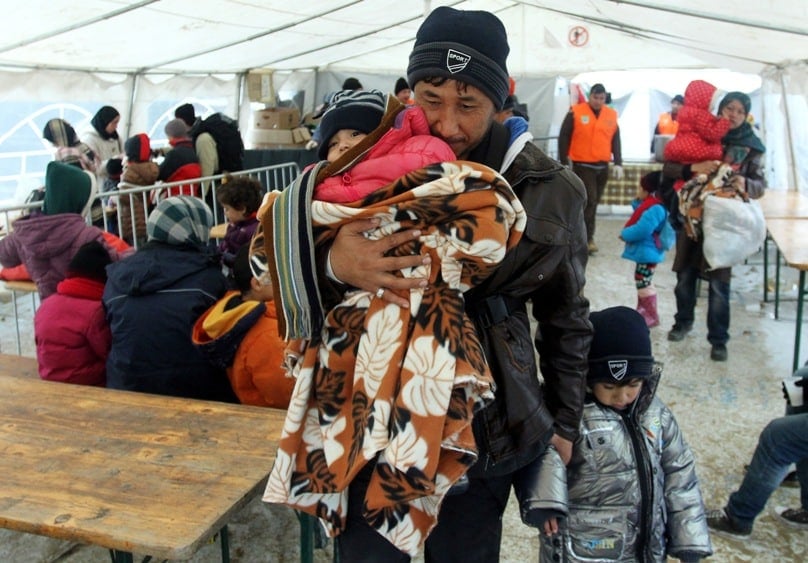
The welcome mat is extended more often around this time of the year than at any other, and a national show of such support should be greeting Syrian refugees as they make it to our shores.
However, voices were raised against the intake of displaced people as they were about to arrive following terror attacks in Paris on 13 November that claimed more than 130 lives.
It was “people power” expressed by ordinary Australians that played a role in the decision three months ago to accept 12,000 from among much bigger numbers who were fleeing their homeland in fear of persecution and even death.
Announcing the intake, former Prime Minister Tony Abbott had said that vulnerable women, children and families who were sheltering among persecuted minorities in Jordan, Lebanon and Turkey would be given priority for selection to come to our country.
Some politicians and community leaders were quick to push for a reconsideration of Australia’s gesture after a Syrian passport was found at the scene of the tragic incident at the Bataclan Concert Hall in Paris.
They were concerned that those who were responsible or their accomplices may have entered Europe as part of the influx of people who have been escaping Syria and they were also sceptical about whether selection processes by our authorities could be successful in identifying likely terrorists.
While vigilance is of the utmost importance in dealing with many of the daily realities which are being faced by those administering our border controls and homeland security, it remains obvious that a comparatively wealthy nation such as ours is in a position to do at least something towards addressing the sufferings of genuine refugees.
“Every day, week, or month, people are being buried back home,” were the words of a Syrian man in a report from CNS last month as his countrymen were preparing to face their fourth winter of displacement.
Two months earlier, Pope Francis addressed 5000 consecrated men and women from the Middle East who were visiting the Vatican, saying many people in Syria and Iraq were “our modern day martyrs” and that more Christians are being persecuted now than in the early years of Christianity.
“A few days ago, in St Peter’s Square, an Iraqi priest came up to me and gave me a small crucifix. It was the same crucifix that a martyred priest held when his throat was slit for denying Christ. I carry that crucifix right here,” the Pope told his visitors.
Syrian priests have spoken out about living in an apocalyptic environment where displaced people living with civil war around them battle to find food and water in areas bordering on what was the cradle of Christianity.
Members of at least one Sydney family are related to a priest who has been martyred in Syria, and Syrian priests in our city have appealed to immigration authorities to assist their family members who are suffering in the dangerous environment of their homeland and neighbouring countries.
When announcing the decision to increase our migrant intake, Australia offered no preferential treatment for Christians but said that attention would be given first to those who were unable to return to Syria.
Noting how the pressure of popular opinion forced the government to take additional refugees, this column reported that the image of a dead three-year old on a beach had been a catalyst that jogged our sympathies.
Given that such moving images remain to the fore of public consciousness for only limited time, as is the way for our recurrent local tragedies of devastation by seasonal fires and floods, it’s inevitable that the potency of the picture that opened our national heart has been replaced by distressing images from the more recent Paris massacre.
To that end and with links to Syrian people at the scene, voices calling for a review of Australia’s offer are entitled to be raised.
Responding to their calls would ignore a great humanitarian tragedy of our time as we prepare to celebrate Christmas and later remember the flight into Egypt by the Holy Family as refugees.
